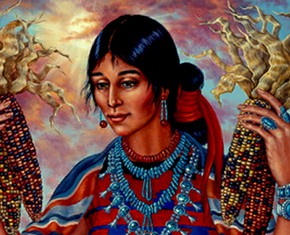The views expressed in our content reflect individual perspectives and do not represent the authoritative views of the Baha'i Faith.
Most people who follow a specific religion presumably think of their religion as the best one in the world. After all — why follow a Faith if you don’t feel that way?
Many Christians believe that Christianity is the truest, best religion, while Muslims who believe in Muhammad argue that Islam is best. Lots of Hindus, Buddhists, Jews, Zoroastrians, and other believers presumably have the same point of view about their respective Faiths.
So, how can we possibly quantify which religion is “best?” Who’s right and who’s wrong?
When you look at the question from a Baha’i perspective, you might be surprised at the answer. The Baha’i teachings offer humanity a unique central principle: the oneness of all religions.
This inherent oneness in the Baha’i teachings means that only one religion exists, which the Creator continually renews with each new revelation spanning the course of human history. Baha’is believe that all the major religions of the world have some aspect of divine revelation or influence — and that they each form a vital link in the continual, ongoing chain of God’s guidance.
Baha’u’llah, the prophet and founder of the Baha’i Faith, wrote about the progressive revelation of those “manifestations” of God:
Contemplate with thine inward eye the chain of successive Revelations … I testify before God that each one of these Manifestations hath been sent down through the operation of the Divine Will and Purpose, that each hath been the bearer of a specific Message, that each hath been entrusted with a divinely-revealed Book and been commissioned to unravel the mysteries of a mighty Tablet. The measure of the Revelation with which every one of them hath been identified had been definitely fore-ordained. This, verily, is a token of Our favor unto them, if ye be of those that comprehend this truth…
RELATED: What Do Baha’is Believe About God?
The Baha’i teachings say that the prophets and founders of the world’s Faiths can be likened to successive teachers in a school. For example, a first grade teacher instructs her pupils according to their capacity and maturity level; while a seventh grade teacher teaches according to the capacity, abilities, and maturity of those pupils. Each one of those teachers unveils new knowledge to students, and each one in the educational chain is just as valuable and important as the others. The only thing that really differs is the capacity of the students at each step in the process.
The teachers, of course, have a much higher level of understanding than the grades they teach — just as the prophets of God understand more than they reveal. This progressive spiritual revelation, the Baha’i writings say, aims to gradually educate and uplift everyone. Abdu’l-Baha, the son and successor of Baha’u’llah, wrote:
All humankind are as children in a school, and the Dawning-Points of Light, the Sources of divine revelation, are the teachers, wondrous and without peer. In the school of realities they educate these sons and daughters, according to teachings from God … so that they may develop along every line, show forth the excellent gifts and blessings of the Lord, and combine human perfections; that they may advance in all aspects of human endeavor, whether outward or inward, hidden or visible, material or spiritual, until they make of this mortal world a widespread mirror, to reflect that other world which dieth not.
This remarkable Baha’i concept, known as progressive revelation, sees all religions as successive revelations from God, and views their prophets as being in complete unity with one another. In a speech he gave in New York City in 1912, Abdu’l-Baha said:
The ocean is one body of water, but different parts of it have particular designations — Atlantic, Pacific, Mediterranean, Antarctic, etc. If we consider the names, there is differentiation; but the water, the ocean itself, is one reality.
Likewise, the divine religions of the holy Manifestations of God are in reality one, though in name and nomenclature they differ. Man must be a lover of the light, no matter from what dayspring it may appear. He must be a lover of the rose, no matter in what soil it may be growing. He must be a seeker of the truth, no matter from what source it come.
The framework of religion, as Baha’is see it, is built upon a myriad number of successive revelations. Each human civilization has received at least one of those revelations. Each prophet brings one iteration, and together they form one continuous Faith. Baha’is believe that the world is not a competitive marketplace of Faiths — instead, in reality, we have one continually-developing, ongoing religion, a single, unified, gradually-unfolding system of beliefs with the same underlying truth and light in each one.
RELATED: Unifying the Organized Religions
So what’s the best religion in the world? Since all religions come from the same source, and teach the same essential message, Baha’is answer that question this way, just as Abdu’l-Baha did:
The Prophets of God voiced the spirit of unity and agreement. They have been the Founders of divine reality. Therefore, if the nations of the world forsake imitations and investigate the reality underlying the revealed Word of God, they will agree and become reconciled. For reality is one and not multiple.
















Comments
Sign in or create an account
Continue with Googleor